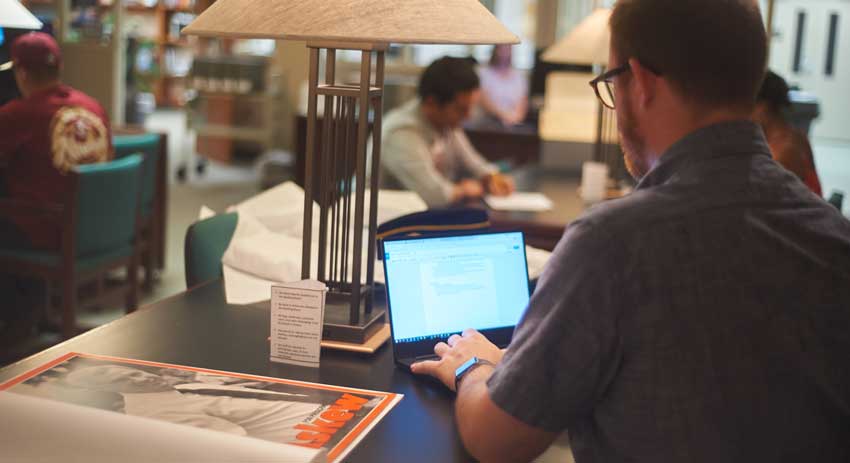Many of the materials listed in this guide are primary sources--historical records that were created by a participant or observer of an event or historical era which they experienced firsthand. In this guide you will find the records of women who compiled their experiences in scrapbooks or documents, especially those who were students at the Florida State College for Women. Other collections compile the files and correspondence of feminist groups in Tallahassee or even collections of feminist zines and comic books focused on women. Some sources were intended to be used by women while others document the ways women have been historically represented.
The categories listed below represent significant historical examples of women's contributions to history and culture as well as their experience and representation within society from the 18th century to the present. The following categories by and about women are representative of the documents and subjects within the collection and that were historically popular for women readers. You can find out more about each category by using the tabs on the left side of the page.
Domestic Sphere: Women's relationship to the home was reinforced frequently in literature. Books written for and often by women focused on their roles as wives and mothers. Genres relating to housekeeping, childrearing, marriage and etiquette were popular subjects and are represented in FSU's collections.
Suffrage and other Reform Movements: Women participated widely in the reform movements of the day. Especially in the 19th century, women were interested in the antislavery movement, suffrage movement, labor movement, and temperance movement.
Scrapbooks, Pamphlets, and Ephemera: Scrapbooks, pamphlets and ephemera are a rich source of information on women's history. FSU's collection holds a number of women's scrapbooks in which the subjects documented their daily lives using photographs, cards, letters, and other ephemera. The historical collection of the university also contains documents about women's time at the Florida State College for Women.
Women in Popular Culture: Women can also be understood as both creators and consumers of mass culture. Within the collection, examples include popular representations of women and popular media consumed by women.
Literary and Artistic Works: This category can include significant works by well-known women writers and artists.
 Primary sources are the building blocks of historical research - they are the documents or artifacts closest to the topic of investigation that you will use as evidence to support your interpretation of the past. Often they are created during the time period which is being studied (e.g. correspondence, diaries, newspapers, government documents, art), but they can also be produced later by eyewitnesses or participants (memoirs, oral histories).
Primary sources are the building blocks of historical research - they are the documents or artifacts closest to the topic of investigation that you will use as evidence to support your interpretation of the past. Often they are created during the time period which is being studied (e.g. correspondence, diaries, newspapers, government documents, art), but they can also be produced later by eyewitnesses or participants (memoirs, oral histories).
You may find primary sources in their original format--often in an archive--or reproduced in a variety of ways: published in books, on microfilm, or digitized in a searchable database.
For comparison, secondary sources are narratives, interpretations, and critical analyses of the past, written by historians or others and (hopefully) based on primary sources. They are created by writers who have the necessary distance in time to put past events and people into their broader historical context. Secondary sources build upon and interpret primary sources, and typically respond to and debate with the secondary sources created by others. Secondary sources also come in a variety of formats, including peer-reviewed books and journal articles, presentations at conferences, professional blog posts, or magazine articles.
You may find primary sources in their original format--often in an archive--or reproduced in a variety of ways: published in books, on microfilm, or digitized in a searchable database.
We often associate primary sources with archives, and secondary sources with libraries, but you can find primary sources in both places. However, it's important to note that these institutions organize information and collections differently.
In archives, materials are usually organized by their origin, more specifically, by who collected them before they entered the archives.
If you donate your photographs, emails, and research notes to the FSU Special Collections & Archives, they will be kept together and likely named for you, the original collector of the materials. They will not be separated into different collections by type or topic.
In Libraries, materials are usually organized by format and subject. Books are shelved together, but sorted by topic. Other information types are also stored together by format, like microfilms, maps, and DVDs, and may be organized by topic or alphabetically by title.
If you donate your books to a library, they will not be kept together as your collection. They will be sorted by topic and shelved accordingly.
Visit SCA Online
Special Collections & Archives Website
FSU Library Catalog
Filter results for SCA by selecting "Library > FSU Special Collections and Archives"
Visit SCA In-Person
SCA Research Center
110 Strozier Library, Main Floor
(850) 644-3271
Claude Pepper Library
Claude Pepper Center, 636 W Call St
(850) 644-9217
© Florida State University Libraries | 116 Honors Way | Tallahassee, FL 32306 | (850) 644-2706